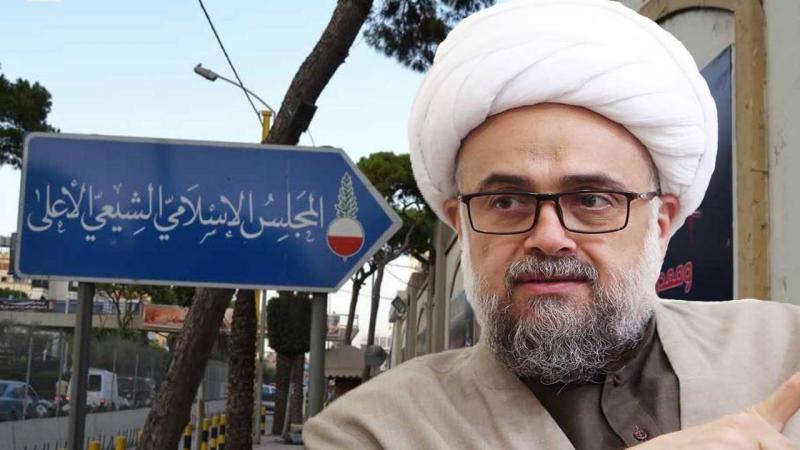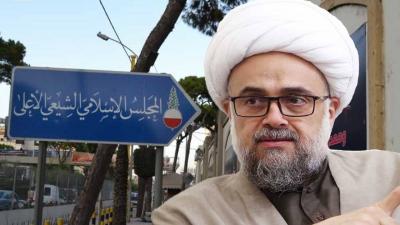The decision by the "Religious Propagation Authority" in the Supreme Islamic Shiite Council of Lebanon concerning several clerics, including Sheikh Yasser Odeh, has sparked significant controversy in Lebanese society and on social media. Although the decision was later rescinded, supportive statements for Sheikh Odeh continued to emerge.
Islamic preacher Sheikh Yasser Odeh confirmed, "There are many groups trying to silence opposing voices within the Shiite community, including my own." He vowed during an interview with the website "Wardana" not to yield except to the truth, even if it costs him his life. He emphasized his rejection of "the corruption of politicians protected by religious authorities."
A decision issued by the "Religious Propagation Authority" of the Supreme Islamic Shiite Council of Lebanon caused a major uproar, as it named several clerics deemed "unqualified to perform religious guidance and to address religious and personal status issues related to the Shiite Islamic community." The decision cited reasons such as "doctrinal deviation, behavioral misconduct, ignorance of religious knowledge, and claims of affiliation with the religious seminary."
It stated that "the clerics are unqualified to wear religious attire and were warned to remove it under the threat of being considered impostors of religious status and subject to legal action." The Deputy Chairman of the Council, Sheikh Ali Al-Khatib, was not aware of the decision. The decision led to a division within the Supreme Islamic Shiite Council, which then officially retracted it in a statement, affirming that it "does not represent the Supreme Islamic Shiite Council and that the head of the Supreme Religious Propagation Authority, Deputy Chairman Sheikh Ali Al-Khatib, was not informed of it, regardless of its content." It added: "The statement issued by the Religious Propagation Authority is considered as if it had never been issued, and it should be noted that no statement should be published in the name of the Shiite Council unless it is exclusively signed by the presidency of the Supreme Islamic Shiite Council."
Sheikh Yasser Odeh was one of the first names targeted by the decision, known for being from the school of the late Shiite cleric Sayyid Muhammad Hussein Fadlallah. Sheikh Odeh tells "Wardana" that attempts to remove him "began with religious motives from some entities within the Supreme Islamic Shiite Council and later turned into political targeting," following his opposing stances towards the authority and traditional leadership and their parties. In a televised interview following the issuance of the decision, Odeh stated that he "respects the turban but does not sanctify a piece of cloth," and he removed his white turban on air, saying: "I will remain as I am, proclaiming the truth as long as I live, and only death will silence me."
Sheikh Yasser Odeh speculated that the council's retraction of the decision might be "a tactical move after they tested the public's reaction to the decision, and it became clear that it divided the public between supporters and opponents, revealing that there are many supporters, and the reaction turned out to be opposite to what the decision-makers intended." He added, "Perhaps a politician contacted the council and requested the withdrawal of the decision, as I heard, and God knows best," indicating that "rulers in the East have always surrounded themselves with religious figures to cover their political agendas, protecting them under their cloaks for their worldly interests and positions."
He continued, "Unfortunately, there are some among the Shiites who hate me because I am from the school of Sayyid Muhammad Hussein Fadlallah, may God have mercy on him, and there are others who despise me because they consider me an enemy of the resistance, which is slander." At the same time, he pointed out "significant sympathy for his situation from people who do not belong to either of these two categories."
Sheikh Odeh noted that he had angered some Lebanese and Iraqis due to a speech of his that circulated on social media when he stated: "Anyone who defends, even with a single word, any legislator, minister, or leader in Lebanon and Iraq, is a liar, corrupt, and complicit with them." Odeh added: "This speech spread in Iraq and angered politicians and beneficiaries, especially Shiite ones," questioning, "How can a country rich in oil suffer from deteriorating infrastructure while many of its citizens live in poverty?" He also criticized some religious leaders in the seminary in the holy city of Najaf, which angered some influential figures in the city that contains one of the holiest Shiite shrines.
Odeh supported the anti-corruption protests that erupted in Iraq and Lebanon in 2019, which were suppressed in both countries. He stated: "The Shiite duo does not like me because I accuse them of mismanagement, failure, and complicity in the country's corruption by signing all laws that waste public funds," referring to decades of corruption and mismanagement that have plunged Lebanon into its worst economic crisis in modern history.
He described the recent attacks against him, including the statement from the Religious Propagation Authority, as "moral killing, killing without a bullet." When asked if he feared for his life, he replied: "I fear no one and do not fear death, for it is a certainty for us. No entity, no matter what its nature, will deter me from speaking the truth as it is or from conveying the pain of the people."
He concluded by saying: "We are fed up with all those holding onto the future and fate of this country, for they and their allies are doing well, while the rest do not know what is good."




